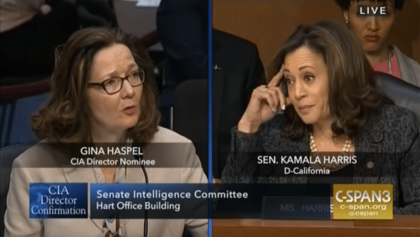Critics of the Obama administration’s drone program may finally get their chance to put it under a microscope, as the U.N. announced that it will be conducting an investigation to determine if the controversial program is a violation of international law.
At a news conference in London, Ben Emmerson, the U.N. special rapporteur on counterterrorism and human rights, announced the inquiry, which will look into the impact of the targeted killing program on civilians, as well as the legal underpinnings.
“The central objective of the present investigation is to look at the evidence that drone strikes and other forms of remote targeted killing have caused disproportionate civilian casualties in some instances,” he said, “and to make recommendations concerning the duty of states to conduct thorough independent and impartial investigations into such allegations, with a view to securing accountability and reparation where things can be shown to have gone badly wrong with potentially grave consequences for civilians.”
The U.N. announcement comes just weeks after the U.S. won an important case in federal court, when U.S. District Court Judge Colleen McMahon rejected lawsuits brought by The New York Times and the American Civil Liberties Union seeking to use the Freedom of Information Act to make public more details about the legal basis for the drone programs. She said the government has no legal duty to disclose legal opinions justifying the use of drones to kill suspected terrorist operatives abroad, though she wrote that doing so would contribute to “intelligent” public debate over the legality of that practice.
After losing the legal case, the ACLU said it welcomed the U.N. investigation.
“Virtually no other country agrees with the U.S.’s claimed authority to secretly declare people enemies of the state and kill them and civilian bystanders far from any recognized battlefield,” said ACLU National Security Project Director Hina Shamsi in a statement. “To date, there has been an abysmal lack of transparency and no accountability for the U.S. government’s ever-expanding targeted killing program.”
Jamil Dakwar, the ACLU Human Rights Program director, said that whether the U.S. decides to cooperate with the inquiry “will show whether it holds itself to the same obligation to cooperate with U.N. human rights investigations that it urges on other countries.”
According to some estimates, the CIA and the U.S. military have undertaken more than 300 drone strikes and killed about 2,500 people — many of them civilians. The Bureau of Investigative Journalism estimates that between 2004 and 2013, CIA drone attacks in Pakistan killed up to 3,461 people — up to 891 of them civilians.
“The exponential rise in the use of drone technology in a variety of military and non-military contexts represents a real challenge to the framework of established international law,” Emmerson said in a statement released by his office.
“It is therefore imperative that appropriate legal and operational structures are urgently put in place to regulate its use in a manner that complies with the requirements of international law, including international human rights law, international humanitarian law (or the law of war as it used to be called), and international refugee law.”
The U.N. investigation will add more urgency to the Senate confirmation hearings of John Brennan, who Obama has nominated to be the new CIA director after an adultery scandal involving the former director, David Petraeus, forced him to resign.
Brennan is considered the architect of the U.S. drone program. There is evidence that with Brennan’s guidance the administration has stepped up the use of drones in Yemen and Mali, even as it decreased operation in Pakistan because of widespread anger over the program.
As evidence of the growing unpopularity of drones in Pakistan, the Pakistani parliament last April voted for the first time to end the approval for the CIA drone program.
But in Yemen, President Abed Rabbo Mansour Hadi struck a different tone, saying in a September interview with The Washington Post that he personally signs off on all U.S. drone strikes in Yemen, and that they hit their targets accurately because “the drone technologically is more advanced than the human brain.”
U.S. officials have defended the drone program by claiming it is not illegal if they are going after militants.
But LaSalle University professor Michael Boyle, a counterterrorism expert who advised President Obama during the 2008 campaign, has released a report viciously criticizing the administration for the drone program. Boyle claims the program is responsible for killing far more civilians than the administration has acknowledged and it is ultimately ineffective because it radicalizes the young men in the countries where it is used — primarily Yemen, Pakistan, Somalia and Afghanistan.
Emmerson will present a report and recommendations to the U.N. General Assembly in October.


